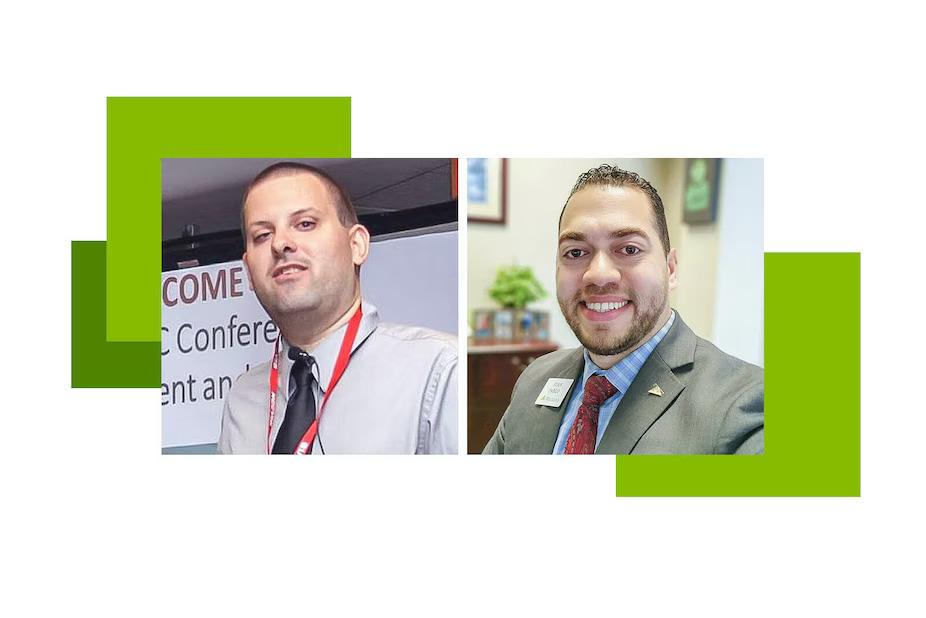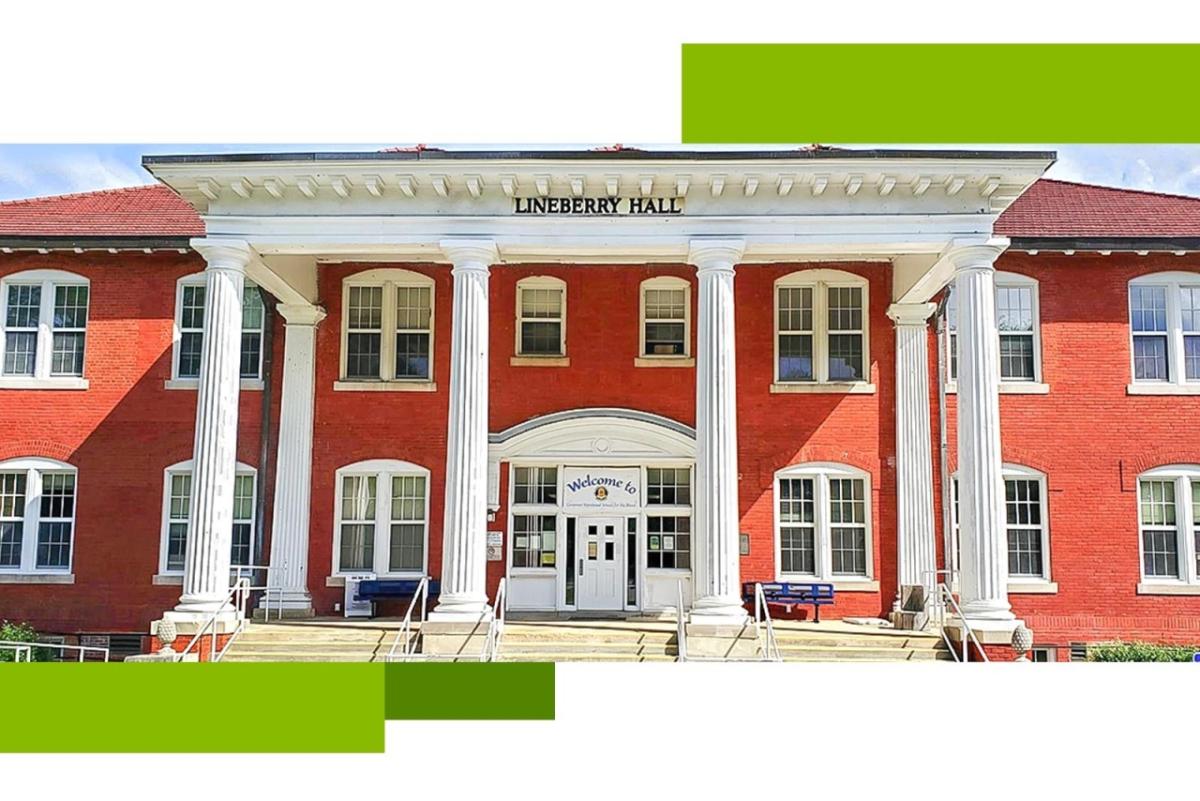With Tools and Training From Regions, North Carolina Teens Retreat From No Challenge
Learn how the bank and a nonprofit leader are empowering youth with blindness or vision impairment to camp outside their comfort zones.
By Kim Borges
“He’s never going to ride a bike.”
They would have been soul-crushing words for many parents to hear. But not Alan Chase’s.
“My parents had to be my advocates,” said Chase, reflecting on his youngest days in rural Eastern North Carolina. “For me as a child, the expectations were low. The teachers really didn’t know how to deal with me. I think they were mostly worried about me getting hurt and wanted to put me in bubble wrap.”
But Chase and his parents knew he was capable of achieving anything he desired despite a visual impairment. Today, Dr. Chase – he earned a doctoral degree in Education – is instilling that same message in middle and high school youth who are blind or visually impaired. He’s doing so through his Envisioning Youth Empowerment (EYE) Retreat.
“We needed an avenue to bring people together to see how we could increase employability and opportunities for education,” Chase said of the nonprofit he established in 2009.
Each summer, 40 teens from across the country head to the Governor Morehead School in Raleigh for the EYE Retreat camp covering topics like adapting to college life, daily living skills, assistive technology resources, self-advocacy strategies and more.
“What I tell parents is that we try to squeeze about five years of life into five days,” said Chase. “We ask questions like, ‘What should you be thinking about as you’re preparing to graduate from high school? How do you access services on a college campus?’ We also emphasize that college isn’t just about taking classes; there are social and independence aspects as well.”
Regions Bank associates recently delivered financial education for EYE Retreat campers discussing that independence aspect. The connection occurred thanks to Juan Pablo Ceballos Garcia, manager of Regions’ Northpark branch in Raleigh, where Chase is a customer.
"I think the bank’s involvement with projects like the EYE Retreat shows our customers and the community that we not only talk the talk when it comes to being inclusive, we live by it in making accessible products available."
LaShon Fletcher, supervisor of Regions’ Deposit and Document Operations group
“When Alan expressed interest in teaching the campers about financial literacy and how to apply to college, I was excited to find out how we could help make the seminar possible,” said Garcia. “Our teammates did a phenomenal job following up to make this event a reality.”
Leading that team? Kathy Lovell and Keren Treme from Regions’ Community Affairs group, who taught the Money Basics for Life workshop. The course is designed for people with disabilities and is part of Regions’ Next Step curriculum.
“We are passionate about empowering people through financial wellness, so we were very eager to work with Alan,” said Lovell, disability services and outreach manager for Regions. “Our Money Basics for Life workshops are highly interactive sessions discussing ways to bank independently, and that was certainly the case with the EYE Retreat campers who asked incredibly thoughtful questions.”
Lovell enlisted additional support from the Deposit and Document Operations team to secure Braille materials for the session. But the group did more than just obtain the handouts from a Braille provider.
“We covered the cost of the materials as a way of supporting our Disability Services team while also promoting financial education,” said LaShon Fletcher, supervisor of Regions’ Deposit and Document Operations group. “I think the bank’s involvement with projects like the EYE Retreat shows our customers and the community that we not only talk the talk when it comes to being inclusive, we live by it in making accessible products available.”
That welcoming approach was noticed by campers Anagha Puranik and Terrell Covington.
“I loved the Regions Bank presentation and their work being so inclusive,” said Puranik. “The main takeaway I had was how anything is possible if you put your mind to it and how hard work always pays off. I gained a whole new perspective and learned lifelong lessons that will improve my future.”
“This session encouraged me to be creative with managing and saving my own money,” Covington added. “I am more independent when coming to the EYE Retreat. I’m extremely happy to be in this positive and safe environment every summer around peers who are like me.”
Campers are also partnered with adult mentors who are visually impaired. It’s all part of Chase’s purpose to create that safe, positive space while encouraging campers to push beyond their comfort zones.
“At the end of the week, which is my favorite time, we go off campus, taking the campers to a local university and businesses,” said Chase. “They also navigate public transportation. It offers students a chance to consider, ‘How do I advocate for myself?’ and ‘How do I ask for assistance?’”
Chase and team also encourage campers to think about what their long-term employment resembles.
“‘What career am I going to pursue?’ and ‘What accommodations do I need in the workplace?’ are additional questions we explore,” said Chase.
The week is filled with questions; but it’s also filled with fellowship and self-discovery.
“For many students, they might be the only visually impaired student in their whole county,” said Chase. “Because of that, the opportunity for social interaction and networking is limited. We have students come to the EYE Retreat from Ohio, Pennsylvania, Massachusetts and Florida. That tells me what we’re doing is unique.”
And fun. Many campers are repeat participants.
“Fourteen years ago, we had no idea if this was going to be successful, effective and popular,” said Chase. “I’m now asked every year when camp is going to be two weeks long.”
Alan Chase’s life is far bigger than others may have imagined it would be. But not to him – or his parents.
“I had to find my own voice,” Chase recalled, thinking of how his parents gave him faithful support; the rest was based on his own determination.
It’s a model for others to follow – and one that more advocates and businesses are proud to support.



